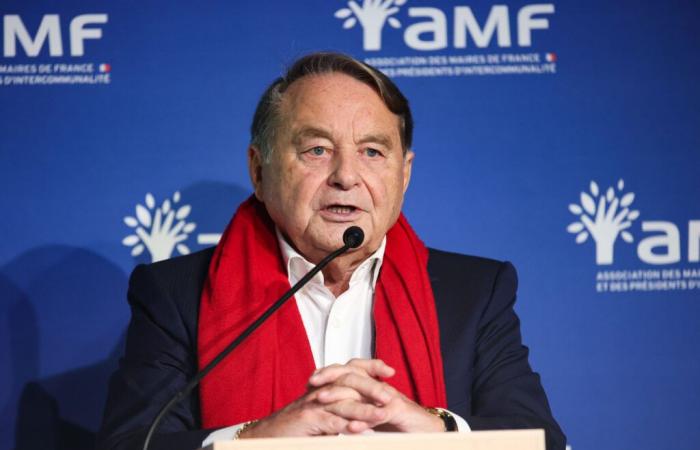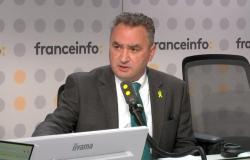
“This congress risks being one of anger”. This is the warning that David Lisnardpresident of the association of mayors of France (AMF) towards the State to present “his congress”. Like every year, at the end of November, the Porte de Versailles Exhibition Center welcomes the Congress of Mayors and presidents of intermunicipality of France. For this 106th edition, the AMF has chosen to take as its theme “The communes… Fortunately!”
The municipalities of France as a model of stability
In a climate political instabilityFrench municipalities and their intermunicipalities pose as a model of stability and local democracy. “The municipalities do the job, they make the services publics of daily life, carry out concrete projects that improve the living environment of residents, give meaning to public action, and bring our democracy to life at the local level. Throughout the debates, the multiple conferences and information points will show that, fortunately, municipalities are acting to bring local freedoms to life in the service of citizens, to strengthen social cohesion and to meet the challenges of ecological transition”expose David Lisnard to present its congress and justify the theme of the 2024 edition.
For the first time, Congress will address head-on the impact of drug trafficking on the daily lives of citizens, with testimonies from the mayors most affected. In response to growing concern over the rise in violence linked to drug traffickingelected officials will challenge the State on the measures to take to fight this crisis. The objective, “make the fight against this scourge more effective, which is at the heart of the State’s sovereign security mission”, in the words of the AMF.
Decentralization, integration and finances on the agenda of the congress of mayors
Another highlight of the opening session will be the AMF's awareness message regarding the integration of disabled peoplein view of the 20th anniversary of the 2005 law. On this occasion, mayors are called upon to make inclusion a central axis of their municipal policy. The Congress will also host the first Franco-Ukrainian meetings of local authoritiestestifying to the solidarity of French municipalities towards Ukraine in the middle of war.
Mayors, worried about new “financial drains on local authorities”, will also discuss ways to clean up the public accounts. In unison with the departmental associations, the Congress will insist on “the need to preserve the budgetary autonomy of municipalities, essential to facing current crises”explain André Laignelvice-president of the Mayors of France.
Finally, the AMF wishes to reaffirm “the urgency of true decentralization” In France. Faced with the multiple challenges facing the country, the capacity for action of municipalities is, according to the AMF, a crucial asset to guarantee a response adapted to local realities.
Numerous forums organized at the 106th Congress of Mayors
The 106th Congress of Mayors plans a series of round tables, plenary sessions and forums around the major issues of local governance. At the heart of these exchanges: the autonomy of municipalities, the ecological transitionthe citizen participation and the crucial question of financing of public policies.
On Tuesday, November 19, at 10 a.m., a round table on the implementation of the Zero net artificialization (ZAN) will address the challenges and potential solutions to protect land while reducing urban sprawl. Local elected officials will highlight the difficulties of compatibility between local town planning schemes and the amended SRADDETs, which will come into force on November 22. “Is there a model that respects agricultural soils and biodiversity without imposing a ZAN trajectory perceived as arrhythmic and inequitable?” the participants will ask.
On Wednesday, November 20, at the same time, the forum “Rural municipalities in transformation: act so as not to suffer” will be interested in social and economic changes which push them to reinvent themselves despite often limited means. In a context of reduced resources, how can these municipalities reorganize themselves to preserve their skills and meet the essential needs of residents? This session will also offer avenues for enhanced support in their local public service mission.
At 2:30 p.m., the round table “Involve residents for ever more efficient municipalities” will explore ways to encourage dialogue between citizens and local elected officials. Faced with complex standards, multiple expectations and limited budgets, municipalities are seeking innovative solutions to establish dynamic communication with residents and consolidate citizen trust.
On Thursday, November 21, at 10 a.m., elected officials will discuss the financial constraints growing pressures on municipalities, while the finance law for 2025 provides for a levy of nearly 10 billion euros from communities. The question of financing transport infrastructure will be at the heart of the debates, illustrating the tensions between public service ambitions and budgetary realities. “The ability of municipalities to carry out their missions depends today on the adaptation of our financing models”, believe the elected officials.





